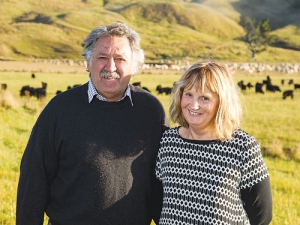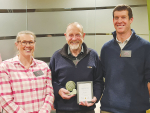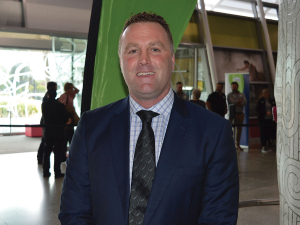Farms from the Far North and the East Coast have made the Ahuwhenua finals.
Mangaroa Station
Located in Ruakaituri Valley, 60 minutes drive northwest of Wairoa, the farm is 1506ha (1250 eff). Owners Bart and Nuku Hadfield run 6200 Romney Perendale ewes, 2000 replacement ewe lambs and 70 rams, and 500 Angus breeding cows and 400 heifers.
The property is virtually all hill country with a small amount of rolling hill country.
The Hadfields bought Mangaroa in 2001 in partnership with family members; the aim was to build it up so that individual families could eventually afford to buy their own economic units. They first agreed to work together for five years, but this extended to seven, then Bart and Nuku took over the station in 2008, focussing on reducing debt, increasing production and improving the property.
Development has included building a large covered yard, cropping and re-grassing 80ha of rolling country, clearing 80ha of scrub and erecting 10km of conventional fencing.
Shearing has played a huge part, all family members doing this for many years. The money earned from shearing has helped them build their equity in Mangaroa.
Paua Station
The farm, located 80km north of Kaitaia and 40km south of the tip of Cape Reinga, is owned by the Parengarenga Incorporation in the small community of Te Kao.
Paua Station consists of 2430ha of easy rolling coastal sand country carrying 2800 mainly Angus cattle and 7000 sheep, of which 6100 are breeding ewes.
Paua Station’s story is one of development and it is ongoing, says general manager John Ellis. It’s now mainly a finishing property and the farming policy dovetails with Te Rangi Station also owned by the Parengarenga Incorporation and Cape View Station which is leased.
“[We’ve increased] stock numbers and have a stock policy which better suits the often dry summer conditions of the Far North,” Ellis explains. “For example, Paua Station lambs in June/July and has most of these off the farm by Christmas. This allows us to get premium prices and to take the feed pressure off capital stock in summer.
“We are moving from a Perendale-cross flock to a Romney one to gain better returns in lambing, while retaining the quality meat and wool.”
Ellis says the station now breeds and finishes its own Angus bulls and again sells them in winter/spring to gain the best price.
Maranga Station
This is a typical East Coast hill country sheep and beef property which lies about 30km south west of Gisborne and is owned by Marty and Janice Charteris.
The 850ha property is a mix of country, ranging from 50ha of flats to 500ha of moderate, rolling country, with the balance steep hill country. It runs 6000 Romdale sheep and 1200 Angus cattle plus 600 goats, mustered annually.
In 1989, Janice and Marty Charteris bought their first farm in the area – the 285ha Wakelins Highcrest where they ran 2500 stock units. In 1995 they bought Gillingham’s Rimuhau and added 424ha and 3400 stock units. They also leased a further 56ha before finally buying Maranga, at which point they consolidated all the land into Maranga Station.
The Charteris’s have a split lambing policy, the older ewes lambing in July and younger stock in September. The early lambing means they cash in on the Christmas market, and it allows them to buy in lambs to utilise pasture between December and July, plus it helps avoid the dry months.











